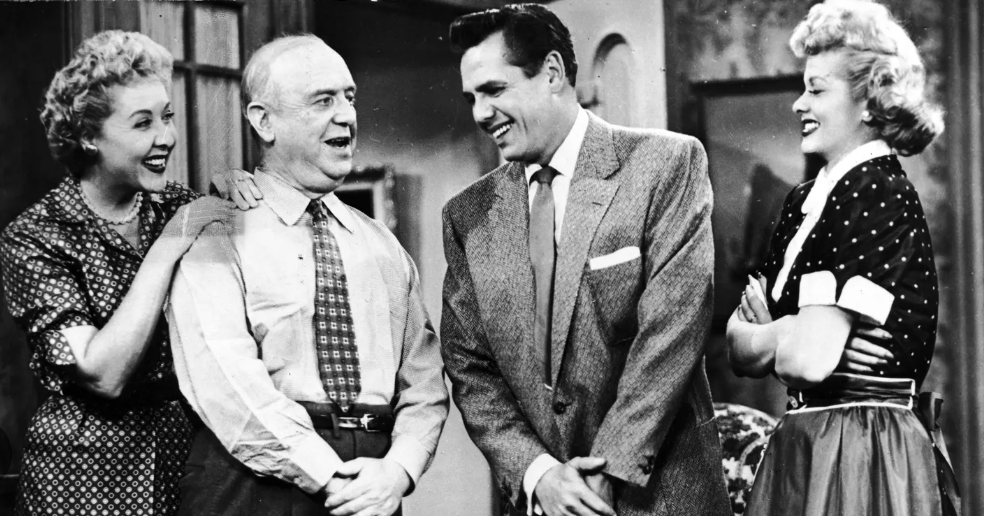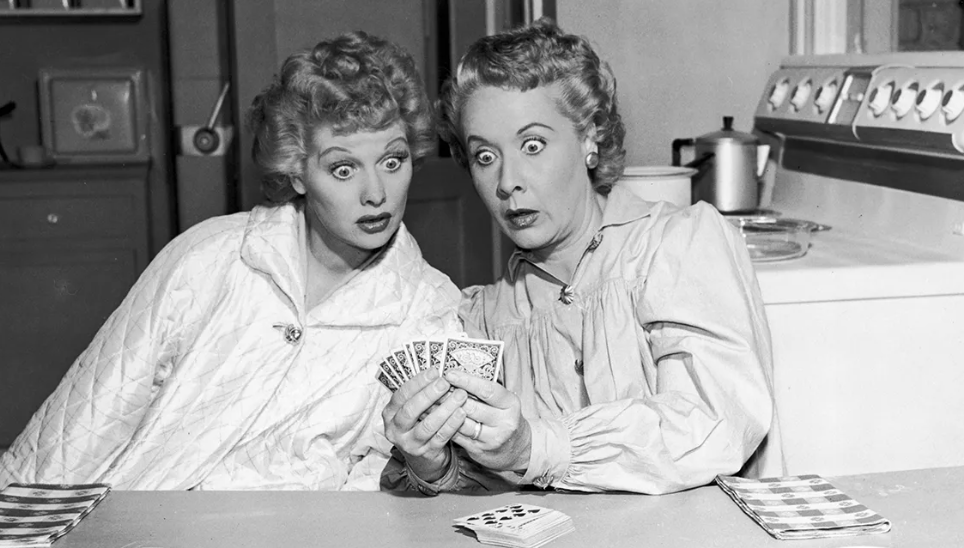
Before Lucy Ricardo’s hilarious schemes and iconic facial expressions graced our screens, the landscape of television comedy was a very different place. “I Love Lucy” wasn’t just a popular show; it was a groundbreaking phenomenon that fundamentally reshaped the way sitcoms were made and experienced, laying the very foundation for the television we know and love today. Its impact reverberates through decades of comedy, making it arguably the defining sitcom of the 20th century and beyond.
Think about it: before Lucy, television hadn’t truly unlocked the magic of a live audience interacting with the performers in real-time. “I Love Lucy” boldly pioneered the multi-camera setup filmed in front of a live studio audience. This innovation brought an energy and spontaneity to the small screen that was previously unseen, creating a sense of immediacy and connection that drew viewers in and made the laughter contagious.
Furthermore, the casting of real-life married couple Lucille Ball and Desi Arnaz as the fictional Ricardos added an unprecedented layer of authenticity and chemistry. Their dynamic, both on and off-screen, resonated deeply with audiences, making their on-screen relationship feel genuine and relatable, even amidst the comedic chaos. This blurring of reality and fiction was a novel concept that captivated the nation.
But perhaps the most revolutionary aspect of “I Love Lucy” was the unapologetic portrayal of a woman as the central comedic force. In an era with more traditional gender roles on television, Lucille Ball’s Lucy was a whirlwind of ambition, curiosity, and delightfully flawed schemes. She wasn’t just a supporting character or the long-suffering wife; she was the engine of the comedy, proving that a woman could be outrageously funny and utterly beloved by an entire nation. Lucy’s antics, often driven by her desire for more than just domestic life, resonated with a changing America and paved the way for countless strong female comedic characters who followed.
“I Love Lucy” wasn’t just a show you watched; it was an experience. It brought families together, filled living rooms with laughter, and subtly but powerfully shifted the landscape of entertainment. It established production techniques, casting dynamics, and character archetypes that continue to influence television to this day. It wasn’t just a hit; it was a cultural touchstone, a foundational text in the history of the sitcom.
So, who still makes time for a yearly rewatch of the timeless brilliance that is “I Love Lucy”? Raise your hand high! ✋ Let’s celebrate the show that didn’t just entertain us; it built the very stage upon which modern television comedy stands.

